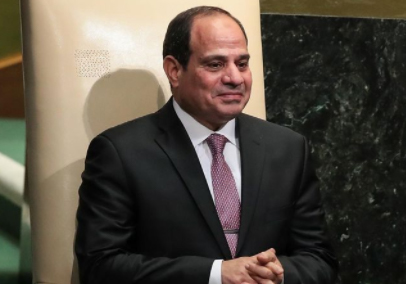The ICJ today called on the Egyptian authorities to ensure that the framework on the state of emergency is comprehensively reformed consistent with the country’s international human rights obligations.
The ICJ is particularly concerned that Egypt seems to be returning to the continuous and permanent state of emergency that prevailed in Egypt, uninterrupted, from 1981 until 2012, and that resulted in grave and systematic human rights violations.
Since April 2017, President El- Sisi (photo) declared the state of emergency, renewed it, and then declared a new state of emergency five consecutive times.
“In declaring and renewing exceptional measures under the state of emergency, Egypt has consistently failed to demonstrate that the situation ‘threatens the life of the nation’, the threshold for such measures under international law,” said Said Benarbia, ICJ MENA Director.
Egypt has also failed to set out clear and precise conditions in which the President is allowed to declare the state of emergency and in which measures derogating from human rights under the state of emergency can be declared, the ICJ says.
It has also failed to ensure that each such measure is strictly limited and proportionate to the exigencies of the specific emergency, specify which rights can or cannot be subject to derogation, and notify relevant stakeholders of such derogations, the Geneva-based organization adds.
“Repealing or amending emergency measures to ensure they are limited in time and scope and are not used to curtail rights or to crush dissent, is a prerequisite to establishing and upholding the rule of law in Egypt,” added Benarbia.
The ICJ’s findings and recommendations are based on a position paper published today, in which the ICJ analyses the framework on the state of emergency and assesses its impact on certain aspects of the administration of justice, including those relating to the use of emergency state security courts and to the right to liberty and to fair trial.
Under the framework of the state of emergency, Prime Minister Sherif Ismail issued a decree on No. 2165/2017 through which numerous crimes, including those related to protest, assembly, terrorism and labour law have been placed under the jurisdiction of the emergency state security courts.
These courts have mainly been used to try students, human rights defenders, political activists, union members and those suspected of opposing the government in proceedings that fall short of international standards on fair trial.
“Authorities must abolish the emergency state security courts and ensure that any existing proceedings before them should be either nullified or transferred to the ordinary courts,” said Benarbia.
Contact
Said Benarbia, Director of ICJ’s Middle East and North Africa Programme, t: +41-22-979-3817 ; e: said.benarbia(a)icj.org
Egypt-Return to State of Emergency-Advocacy-Analysis brief-2018-ENG (full memo in English, PDF)
Egypt-State of emergency-News-Press releases-2018-ARA (full story in Arabic, PDF)
Egypt-Return-State-of-Emergency-Advocacy-Analysis-brief-2018-ARA (full memo in Arabic, PDF)

